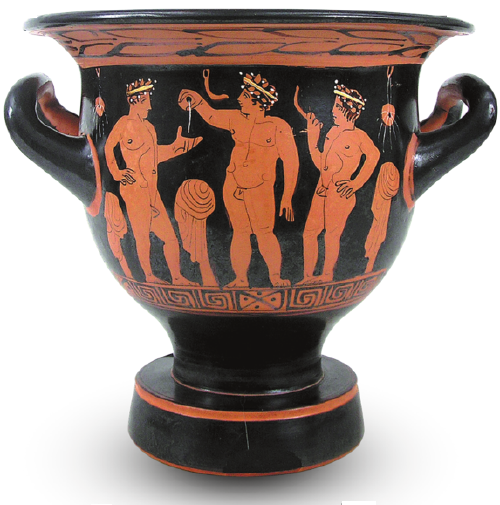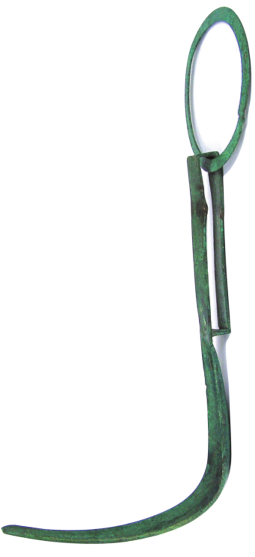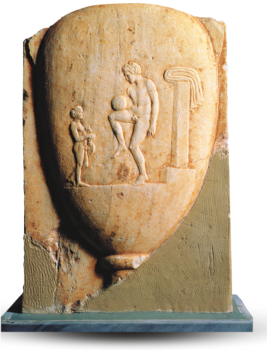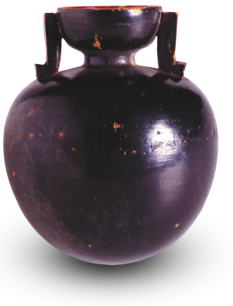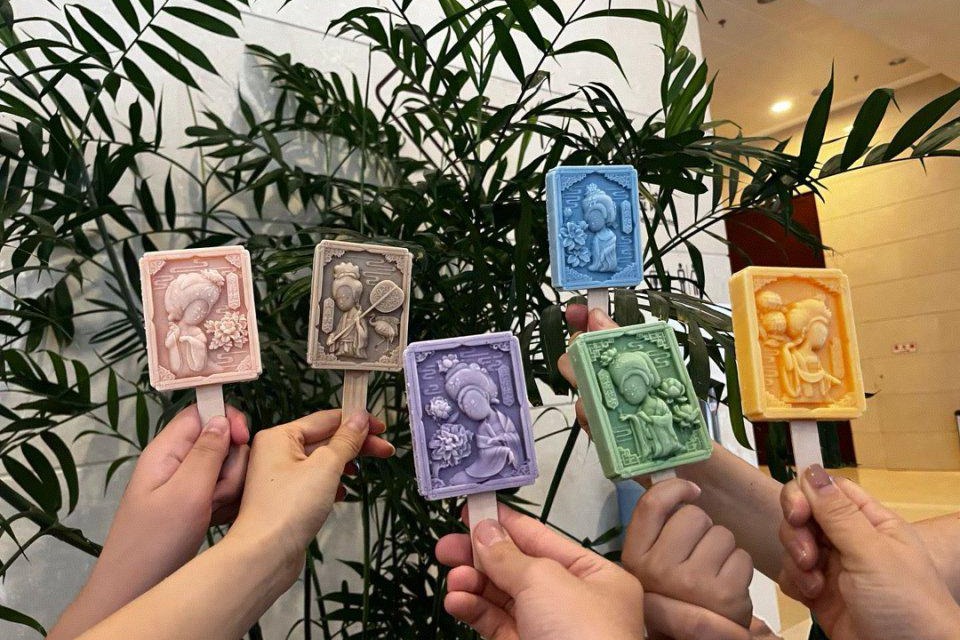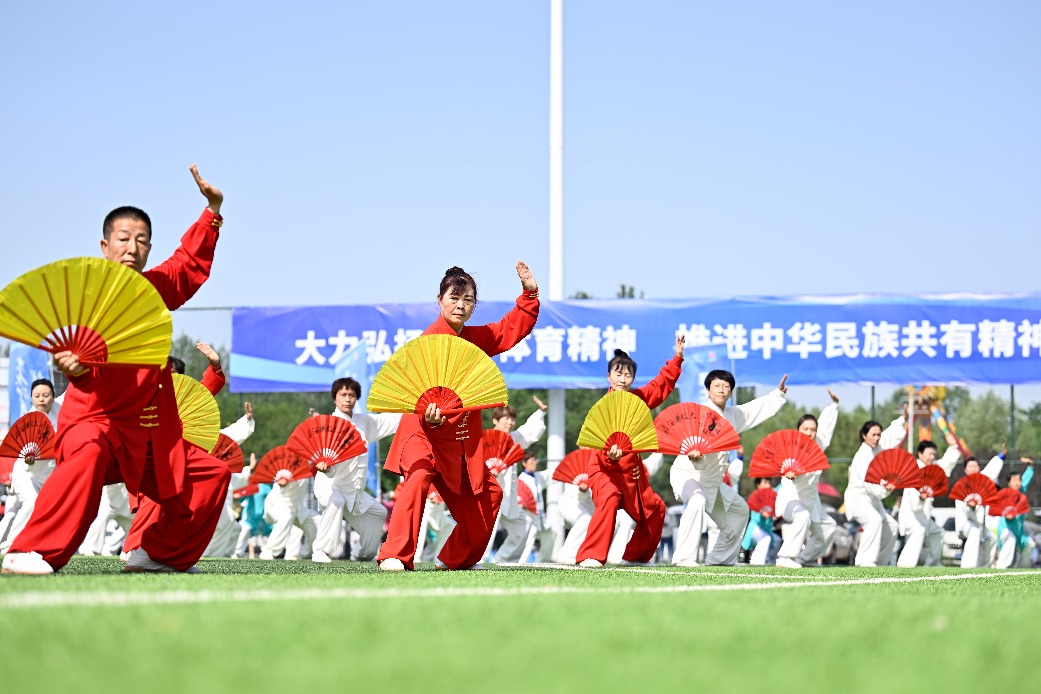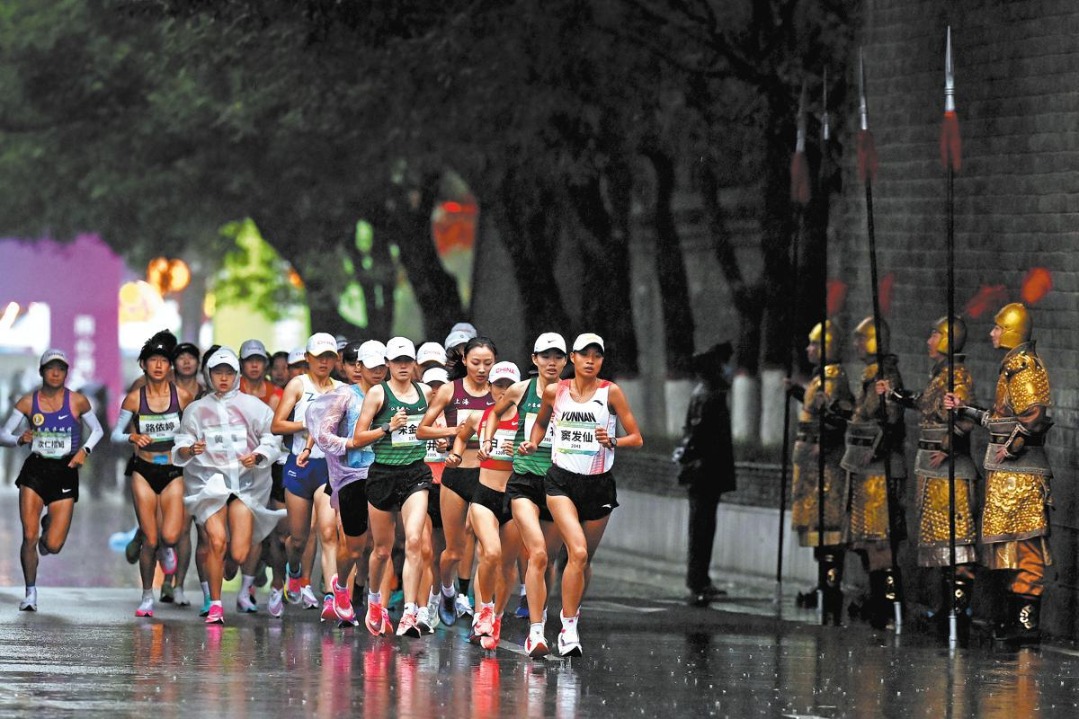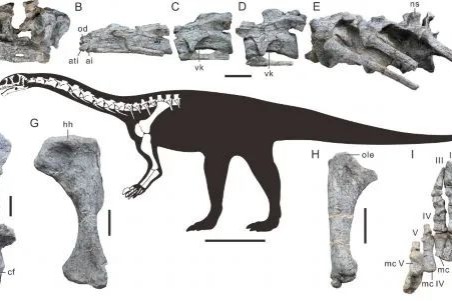Ancient Greeks gave culture a sporting chance
Items on display in Nanjing Museum reveal importance attached to physical and mental condition, Zhao Xu reports.

Within the enviable collection of ancient Greek art held by the National Archaeological Museum in Athens, there's a type of red-on-black container known as krater, ancient Greek clay vases typically used for mixing wine and water, as the ancient Greeks would do.
Of the thousands, if not tens of thousands of kraters held by the museum, this one, dating to the early 4th century BC, has traveled the long distance between Greece and China to show up at an exhibition focusing on ancient Greek civilization, for a distinct reason.
"The piece, by capturing on one side a specific moment inside the gymnasium, tells a story about the building of the body, which, together with the exercising of the mind, constitutes the Grecian ideal of a man," says Guan Lin, curator of the exhibition Ancient Greek Civilization — the Glory of the Aegean Sea at the Nanjing Museum in Nanjing city, East China's Jiangsu province.
With the natural red color of the clay accentuated by the black background, the picture shows three nude youths preparing to treat their bodies after physical exercise.
The one in the middle is shown holding up an aryballos — a small round or oval-shaped oil container — from which oil drips into the hands of his companion who stands on his left. The athlete on the right holds a bronze strigil. Made up of a handle and a curved blade designed to conform to the contours of the body, a strigil was used after exercise to scrape off oil, dirt and sweat, the latter two tending to accumulate on the oil-covered young bodies.
Examples of both the aryballos and the strigil, also from the National Archaeological Museum in Athens, are on view at the exhibition that runs until Oct 20.
The applying of oil was done for both aesthetic and practical reasons. While emphasizing well-worked muscles, the oil helps to warm muscles and provides a protective layer to the skin. During wrestling, a well-oiled body would be very slippery and therefore hard for the opponent to grasp, let alone to throw to the ground.
Considered by Plato as a sport for the education of youth in the "Ideal State" he envisioned, wrestling was among the competitions of the ancient Olympic Games, held every four years between the 8th century BC and AD 4th century in Olympia, a small town on the Peloponnese Peninsula in Greece.
The Games also included competitions for jumping, discus and javelin-throwing, horse and chariot racing, and most importantly, racing on foot, which was the only event for the first 13 Olympics.
"Participants were required to complete a length of 192.27 meters in the Games that lasted only for a day," says Guan.
"It was eventually extended to a five-day event starting from its 77th edition in 472 BC."
Foot racing was known in ancient Greece as stade or stadion race — stadion being the ancient Greek word for stadium. Another term for sporting venues — gymnasium — contained the inextricable link between physical training and education, according to Guan.
"Few people might know this, but Aristotle founded his philosophical school on the grounds of the Lyceum, a prominent gymnasium in Athens," she says.
The word athlete derives from the ancient Greek word athlos, meaning contest or struggle. It seems that what the ancient Greek athletes were aiming for, with their struggle, was not mere victory, but a balance of the body and the mind, a deeply philosophical concept not entirely unfamiliar to ancient Chinese philosophers.
The immense popularity and cultural significance of the ancient Olympic Games can be testified by the fact that during the Games, Greek city-states observed a truce known simply as the Olympic Truce, which generally covered the period from one week before the Games to one week after. Safe passage and participation by athletes who took part in the Games was guaranteed, forging among the warring Greek city-states a shared sense of identity that ultimately proved essential to the nation-building of Greece.
One example of the implementation of the Olympic Truce, as documented by the 5th century BC Athenian historian Thucydides, involved its possible breaching by the Spartan forces during the prolonged and brutal conflict known today as the Peloponnesian War (431-404 BC).
Having allegedly launched attacks during the truce period, the Spartans were not only fined by the Olympic authorities but also banned from participating in the Games in 420 BC. The Spartans refused to pay the penalty, claiming that their maneuver had been completed before the Olympic Truce was officially announced.
Whatever happened in reality, the Spartans' participation in the Olympic Games that year was prohibited, and the decision was significant given Sparta's reputation as one of the most powerful and militaristic city-states of Greece.
"The Olympics became symbolic of peace thanks to the truce, and the symbolism has continued to date ever since the Games' revival in 1896 by the International Olympic Committee led by Pierre de Coubertin," says Guan.
Whenever there was a war, there were deaths, sometimes countless ones. In ancient Greece, annual funerary games were organized for those fallen on the battlefield, as in the case of the 192 Athenians who died in the Battle of Marathon in 490 BC.
Some scholars believe that although the ancient Olympic Games had been held in Olympia, the sanctuary dedicated to Zeus, the king of the Greek gods, it was these funerary games that are at the core of its origin. And that had added another human dimension to a game closely associated today with the celebration of humanity.
On display at the Nanjing Museum exhibition is an ancient Greek grave stele dating to a period between 400 BC and 375 BC. Depicted on the stele's preserved relief are a naked youth trying to balance a ball on his right thigh and his naked servant boy holding a strigil and aryballos.
According to Guan, it was a Grecian funerary tradition for the deceased to be represented as a young athlete. And it resonated deeply with the Grecian psyche.
In Homer's Iliad, Achilles, the greatest of the Greek warriors in the Trojan War, was given a choice between a long, uneventful life and a short, glorious one.
Achilles chose the latter.
